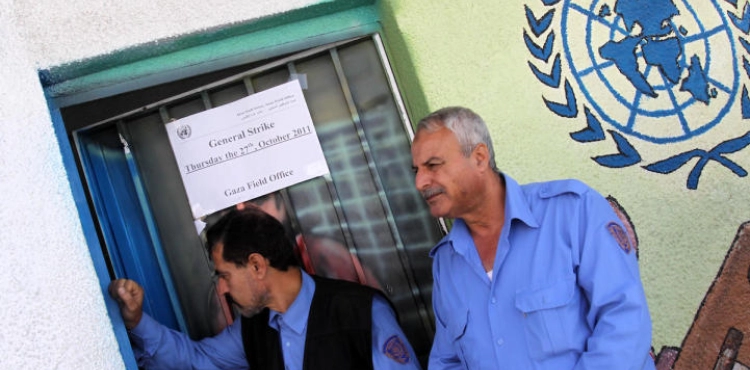The United Nations Relief and Works Agency for Palestine Refugees (UNRWA) warned Tuesday of the dangers of its financial crisis over its health services to Palestinian refugees.
UNRWA said in its annual health report last year that its financial crisis "threatens the investments in primary health infrastructure and health care services offered to all Palestine refugees."
"All the achievements in the health sector are at risk of degradation, which has a devastating impact on the health of the Palestinian refugee community," she said.
UNRWA reported that, despite facing unprepented financial challenges in 2018, it had threatened to provide UNRWA services to a total of 5.4 million registered Palestine refugees, but the provision of primary health care and the facilitation of hospitalization services continued unabated.
UNRWA attributed this to "the remarkable commitment of health workers and the ongoing health reform program, as well as the generous contributions of host and donor governments, specifically to its close partnership with the World Health Organization."
According to the report, in 2018, UNRWA served approximately 23 patients per day through its network of 144 health centers in the five operational regions.
He added that all data for 2018 remained constant or improved compared to the previous year, and therefore UNRWA has continued to maintain the provision of quality health care, the goal of the 2030 agenda and the goal of sustainable development for health and well-being.
Akihiro Sita, director of UNRWA´s health program, said the agency faced an unprecedented financial crisis in 2018 that threatened its primary health care services because of lack of funding.
He said that the medical emergency in Gaza resulting from the demonstrations of the "Great March of Return" has put increasing pressure on the health system, which is already suffering from increasing burdens so that the UNRWA health centers received more than four thousand injured, most of them with gunfire.
"The ongoing conflicts in Syria have affected the safety of our health services in some areas, and the purchase of essential medicines at high quality has also been a challenge to us," Sita said. "The overall situation was difficult, but we were never under pressure."
Last year UNRWA suffered an unprecedented deficit in its fiscal budget after the United States cut its financial support to the agency to pressure the Palestinians.
Washington has been supporting UNRWA for $ 360 million a year, but last year it only provided $ 60 million and decided to stop funding entirely this year.
Established by a resolution of the United Nations General Assembly in 1949, UNRWA provides services to about five million registered Palestine refugees in its five regions - Jordan, Syria, Lebanon, the West Bank and the Gaza Strip - to achieve their full potential in human development until Just to solve their cause.
UNRWA services include education, health care, relief, social services, infrastructure, camp improvement and microcredit.












